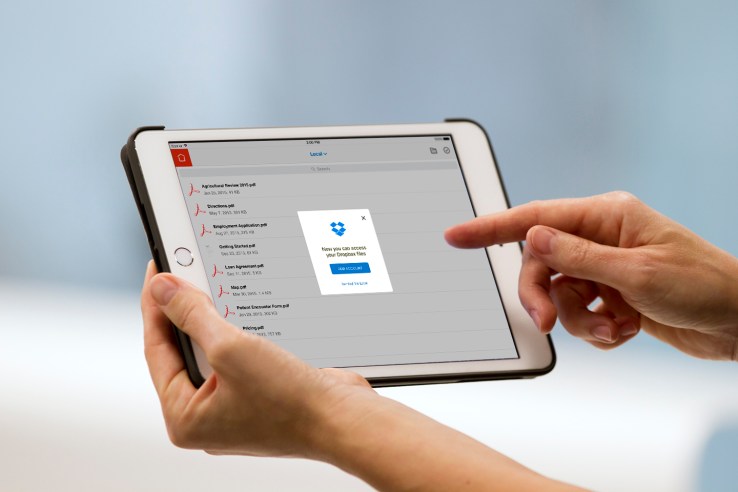
Dropbox disclosed earlier this week that a large chunk of its users’ credentials obtained in 2012 was floating around on the dark web. But that number may have been much higher than we originally thought.
Credentials for more than 60 million accounts were taken, as first reported by Motherboard and confirmed by TechCrunch sources. The revelation of a password breach at Dropbox is an evolution of the company’s stance on the 2012 incident — the company initially said that user emails were the only data stolen.
Here’s the exact phrasing from the 2012 blog post:
A stolen password was also used to access an employee Dropbox account containing a project document with user email addresses. We believe this improper access is what led to the spam. We’re sorry about this, and have put additional controls in place to help make sure it doesn’t happen again.
Dropbox disclosed in 2012 that an employee’s password was acquired and used to access a document with email addresses, but did not disclose that passwords were also acquired in the theft. Because Dropbox stores its user passwords hashed and salted, that’s technically accurate — it seems that hackers were only able to obtain hashed files of Dropbox user passwords and were unable to crack them. But it does appear that more information was taken from Dropbox than was previously let on, and it’s strange that it’s taken this long for the breach to surface.
According to a Dropbox source, in addition to the user emails initially disclosed in 2012, a batch of hashed passwords associated with those emails was also taken. At the time of the breach, Dropbox was moving away from using the hashing function SHA-1, a standard algorithm at the time, and replacing it with the more robust standard called bcrypt. Some of the stolen passwords were hashed with SHA-1, while 32 million were hashed with bcrypt, Motherboard reports. The passwords were also secured with a salt, a random data string added to strengthen the hash. Even though these passwords have now been dumped online, it does not appear that the hash protections have been cracked.